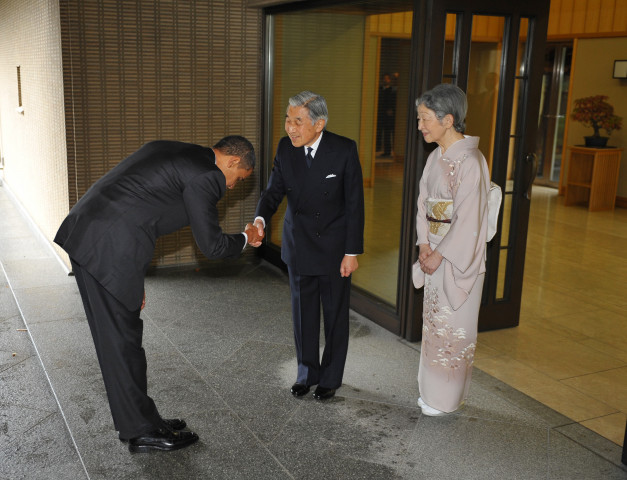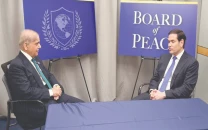Obama to visit Hiroshima after G7 summit: Nikkei
Washington will arrange with Japan his visit on May 27 when the G7 leaders summit wraps up

PHOTO: AFP
Washington will "arrange with Japan his visit on May 27 when the G7 leaders' summit wraps up," the newspaper said in its online version, citing several US government officials it did not identify.
Kerry says 'deeply moved' by Hiroshima memorial visit
A visit by Obama would have enormous symbolic importance and would follow US Secretary of State John Kerry's journey last week to Hiroshima and the memorial and museum to the bombing in the city.
Kerry who was joined by other Group of Seven foreign ministers is the highest-ranking US administration official to pay respects at the spot where an American plane on August 6, 1945 dropped an A-bomb in the world's first-ever nuclear attack.
Obama, who won the Nobel Peace Prize in 2009 for his call for a world without nuclear weapons, is expected to make a speech about nuclear abolition, the Nikkei said, citing an unnamed high-ranking US government official.
Kerry plans no apology for wartime atomic bomb on Hiroshima visit
Obama is also considering offering a floral tribute at Hiroshima's Peace Memorial Park and Japanese Prime Minister Shinzo Abe is also expected to accompany Obama, according to the paper.
Kerry said in Hiroshima as he and his G7 counterparts wrapped up two days of talks that everyone should visit.
"I hope one day the president of the United States will be among the everyone who is able to come here," he said.
Kerry pays landmark visit to Hiroshima atomic bomb memorial
About 140,000 people died directly from the Hiroshima blast or later from severe radiation exposure. The city, a key military installation during the war, was flattened by the massive detonation.
The atomic bombing of Nagasaki followed three days later, killing some 74,000 people. Japan surrendered within a week to end World War II.



















COMMENTS
Comments are moderated and generally will be posted if they are on-topic and not abusive.
For more information, please see our Comments FAQ